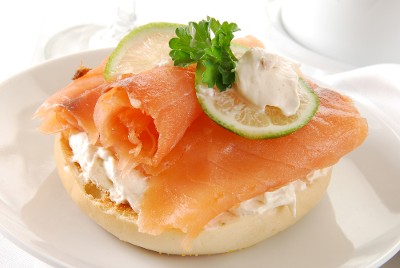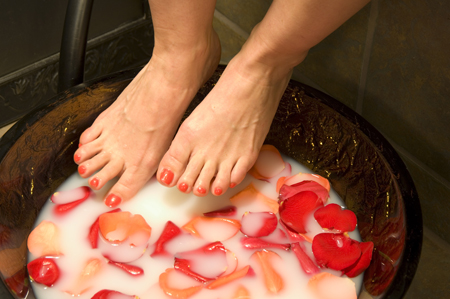The Importance of Sleep and Sleep Hygiene
By Dr. Ashraf Girgis N.D.
FROM BOOK OF "HOLISTIC APPROCH TO STRESS" CHAPTER 7 PUBLISHED 2016


|
In era of coronavirus, everyone is talking about the importance of sleep and itsconnections to immune system.Sleeplessness results in the weakening of our immune system because cytokines are released during sleep. Cytokines are proteins that fight infections as well as inflammation (2). In addition, sleep also helps our body to fight stress – which in turn helps us better fight infections. The “fight or flight” response that comes from stress increases blood flow to essential organs and, in the long term, can lead to inflammation.
|
|
 |
Inflammation is good for an initial response to pathogens, but in the long term systemic inflammation represents dysregulation of the immune system. In fact, it can even lead to the activation of latent viruses and to further wear and tear on our immune system (4).
In other words, we need sleep to repair wear and tear in our body – including on our immune system. Stress impacts our sleep and in the long term sleep deprivation becomes a stressor – a vicious, never ending cycle. After all, we spend a third of our lives sleeping or in bed trying to sleep. But insomnia, or lack of sleep, is a silent health crisis in America, even before the stress and anxiety ofcurrent epidemic. Almost half of the population is suffering from sleep deprivation (Natural Cure p.337) and 30% of these are seniors (Nutritional Healing P.472).
Chronic insomnia, when one is unable to sleep without interruptions for a period of more than a month affects about 10% of Americans (Textbook of Natural Medicine P.1829). Chronic insomnia can cause deficiency in the immune system and decrease productivity at work. It can cause disruptions in relationships due to short temper or angry outbursts, which then causes more stress. Insomnia can have many underlying reasons, some very serious. For example, depression can be one of the causes. In fact, 50% of people with insomnia could have depression or other psychological disorders such as anxiety and stress or loss of loved ones.
|
|
Sleep apnea is another major medical cause of insomnia, affecting eighteen million Americans (Text Book Of Natural Medicine P.1829). Many medications can cause sleeping disorders, including some drugs for high blood pressure, depression and seizures. Sleep has many benefits, from repair of the body’s cells to storing memory. It is also important in preventing short tempers, forgetfulness, anger, stress, obesity, cardiovascular disease and so many other issues that is too important to be able to touch upon in a short article. That is why I would like to address here simple steps that can significantly improve our quality of sleep:
1. Always go to bed at the same time and get up at the same time. Your body’s physiological clock gets used to it and becomes an unspoken rule for your body to follow without much effort.
2.Keep the room as dark as possible. Melatonin, a very important hormone responsible for sleep, is secreted when there is no light. So if you are working at night and sleep during the day, make sure you cover your eyes and close the curtains. Additionally, keep the lights low before you go to bed so you can start feeling sleepy.
3. Create a very relaxing and inviting environment:
*Keep the room temperature comfortable. This is very important; a room too hot or too cold will wake you up. Keeping it slightly on the cool side even seems to work better for most people, about 68 degrees. If possible and safe, try to keep the window slightly open to keep the room air fresh and clean.
* Keep your bedroom organized. Messy rooms can make you feel uncomfortable and disturb your sleep.
*. Use your bedroom only for sleep and sex, if possible. Watching TV before sleep is not recommended, especially if you are watching a scary movie. The same goes with reading a book that is so exiting you don’t want to put it down. However, books that are boring and put you to sleep are highly recommended.
*We spend a third of our life in our beds, so it is imperative that we try to invest in a good bed, a good quality mattress, and comfortable bedding material.
|
 |
|
|
|
4.Keep all electronic gadgets out of the room if possible. If not, keep them at least 6 or more feet away, as they omit infrared waves. You’ll be amazed to see the difference when you turn all your gadgets off – for some reason, your sleep becomes far less interrupted. If you have to have your phone on in your bedroom. Make sure it is as far as possible from your bed.
5. If you have a lot on your mind and are unable to relax or fall sleep, write down the tasks that you need to perform the next day. As soon as we write down a to do list, it often is as if we have almost unloaded the burden. Our body relaxes. Or if we had a very stressful day, just writing down your day’s events and everything that happened can also lessen the anxiety. If you are awakened in the middle of the night and have too many worrying thoughts in your mind, try to make a mental note to have an appointment with yourself the following day (for example, 10 -10:30 am) and focus solely on resolving this specific issue. If you continue to stay awake, try your favorite stress management technique such as guided imagery, meditation, etc. If you still are not able to sleep after more than 2 hours, you can get up and read or write and then try again. Sometimes we wake up because our blood sugar is low, so it is a good idea to drink some warm milk or eat a piece of low fat cheese.
6. Eating right is important for every aspect of our life including sleep.
To begin with, it is important that we do not eat a heavy meal too close to our bedtime. As mentioned before, we need to keep our blood glucose level steady especially during sleep so we do not wake up in the middle of night as the result of hypoglycemia (low blood sugar). Eat foods rich in tryptophan (the precursor of serotonin and melatonin), like turkey, fish, chicken, low fat and natural yogurt, and soy. Also include some complex carbohydrates such as brown rice and whole grain pasta a few hours before sleep so that your blood glucose does not drop down, especially if you are diabetic. Calcium and magnesium deficiency also lead to insomnia. It is good to have green leafy vegetables and nuts like walnuts, almonds, sesame, and sunflower seeds which are rich in calcium, magnesium and zinc. In addition, vitamin B is also essential for sleep. Adding some brewer’s yeast is the best source.


|
|
7) What to Avoid,
A) Caffeinated beverages : Many people have stress in their life; in addition, they drink lots of coffee or soda with caffeine, which makes the situation worse by increasing stress levels. Many people do not realize that coffee is a stimulant and increases the cortisol level in the body, acting as a stressor. Even one cup of coffee takes about 12 hours for the body to get rid of. So if you drink coffee at noon, you will have difficulty falling sleep. And of course, lack of sleep by itself causes stress levels to increase, so caffeine acts as a double whammy.
Coffee has more than 1000 ingredients according to Takayuki Shibamoto, an environmental toxicologist from the University of California Davis. Some of these are anti-oxidants, but overall caffeine is not good when it comes to stress. Caffeine can also be found in tea, chocolates, soda, and some medications. However, the amount of caffeine in tea is very small and most of the time does not affect your sleep .So the next time you want to stop at Starbucks, do yourself a favor and get a naturally decaf tea or decaf coffee, or have it once or twice a day early enough that it does not affect your sleep. Alternatively, you can go for a walk instead or do simple stretching or deep breathing in the morning. However, if you decide to stop your caffeine consumption due to high stress levels and insomnia, do it gradually so you do not end up having withdrawal symptoms. Caffeine also blocks adenosine receptors, which have a relaxing effect. Coffee from a drip machine has an average of 150 mg of caffeine. Tea has about 10-15 mg and soda has an average of 50 or more in 12 oz. Caffeine increases the heart rate, breathing rate, etc.
B) Alcohol I always been against alcohol consumption, perhaps because of my Muslim upbringing. But alcohol has so many negative effects on the mind and body that sometimes I wonder why anyone wants to drink it. Of course, an occasional glass of wine may be good for some cardiovascular reasons. But, when it comes to stress, it is not good. Interestingly, most people try to use alcohol to destress themselves, believing that it relaxes them after a busy day. However, nothing is further from the truth. Alcohol acts as depressant and makes people sleepy or relaxed initially. Studies have shown a decrease or suppression of the REM sleep, a cycle of sleep when all the dreaming takes place and seems to be responsible for maintenance of memories. Less REM has been associated with more awakening at night and more restless sleep. Deep sleep or delta sleep is also reduced. You might spend more time in bed but sleep poorly and end up being sleepy during the next day. Additionally, alcohol depletes many minerals and nutrients, and depletes vitamins such as folate, vitamin B 12 , or vitamin B 6.(5) In addition, vitamin B levels are very important in production of melatonin and serotonin – so their depletion leads to more sleeplessness.

|
|

|
C) Avoid spicy foods before sleep and foods that can provoke allergic reactions. For example, people that are lactose intolerant can have difficulty sleeping because of bloating and cramping. Or if you are sensitive to MSGs, it is best to avoid Chinese food at night. Some spicy foods containing capsaicin (a chemical in hot pepper, tabasco sauce, and mustard) are shown to change body temperature, in addition to oxygen consumption. This leads to discomfort and possible wakefulness and disrupted sleep.(7).
D) Do not exercise vigorously too close to your bedtime. A slow walk in the park can help you to relax and sleep better. However, vigorous exercise has shown to arouse and energize people and if it is done right before your bedtime, it will postpone your sleep time.
|
|
7. Create a Routine,
Try creating a routine before bed, such as taking a warm bath or shower to relax
before going to bed. Or do a mediation or prayer to keep your mind relaxed.
Sometimes listening to relaxing music or using a relaxation technique such as a few stretches and deep breathing can help you to unwind and go to sleep. Listing to soft music can relax your mind and make you feel good.
Using guided imagery can also help. Alternatively, try repeated gratitude prayers toward people you love and care about and toward the world as a whole. Such prayers can help the mind and body, especially during these hard times due to coronavirus.
You can also try prayer meditations for 20 minutes or so before your sleep. Prayers do not necessarily haveto be religious in content. But they need to be a phrase or words that have huge significance for the individual. That is why prayers that have a religious base works for those who are believers. It helps more if you do this while in bed; that way you can combine it by using your imagination and visualizing you are at your favorite place of your choosing.
|
 |
|
|
|
These are several simple and practical steps that can be very effective. However, if you continue to have trouble sleeping or wake up overnight, or if you are overweight, please call a sleep specialist to find out if you suffer from sleep apnea. In these difficult times, don’t hesitate to contact your therapist if needed.
Thanks or visiting www.curenaturally.org
Dr. Ashraf Girgis N.D.
|
References:
1. http://www.health.com/health/gallery/0,,20306715_last,00.html
2. https://www.sleepfoundation.org/articles/how-sleep-affects-your-immunity
3. https://www.ncbi.nlm.nih.gov/pmc/articles/PMC3256323/
4. https://www.ncbi.nlm.nih.gov/pmc/articles/PMC4465119/
5. https://onlinelibrary.wiley.com/doi/abs/10.1111/j.1530-0277.2000.tb04606.x
|
|
Additional Articles
|
 The Key Word in Stress is: The Key Word in Stress is:
Perception, Perception, and More Perception
Read More
|

Laughter Therapy
Read More
|

12 Steps To Take Immediately When Stressed
Read More
|
|
|
|
|